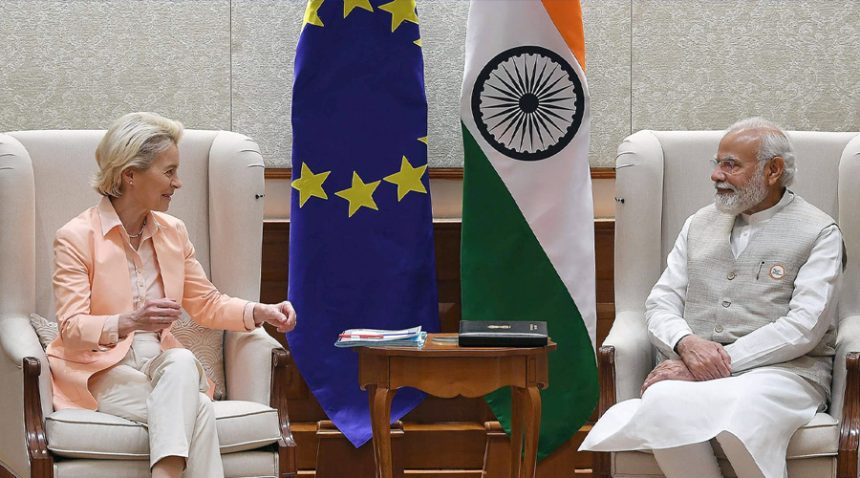India and the EU accelerate Free Trade Agreement talks, targeting a 2025 deal to open markets and secure economic ties amid global trade challenges
Indian government officials and their EU counterparts worked to finalize a Free Trade Agreement that will be completed before 2025 ends. The agreement aims to establish universal commerce accessibility for goods and services and set foreseeable market conditions across both countries. The achievement is part of global efforts to establish trade stability during this evolving economic period.
Maros Sefcovic, the European Commission’s Trade and Economic Security Commissioner, continued to support free trade agreement negotiations when he met with Indian Minister of Commerce Piyush Goyal in Brussels. According to Sefcovic, the current global uncertainties require trade opportunities and predictability because this fosters stability in business activities. According to Goyal, business and citizen welfare objectives will determine the upcoming stages of the deal.
https://x.com/PiyushGoyal/status/1917987686700466313
The FTA negotiations between India and the EU started in June 2022. Ten mutual negotiation sessions have been completed between the two countries so far. The Round eleven talks will occur between May 12 and May 16 in New Delhi. Representatives from both sides discuss a strategy where the agreement would be finalized by dividing its sections between multiple stages, culminating in meeting the deadline and tackling complex issues step by step.
India Expands Trade Relations Across Europe
During his overseas tour, Goyal conducts important meetings with European countries, which serve as major import and export nations. He begins his route to Brussels by visiting the United Kingdom, followed by Norway, for trade and investment discussions. The UK trip may lead to independent agreements between the countries for Free Trade and Bilateral Investment. India and European Free Trade Association members signed the Trade and Economic Partnership Agreement (TEPA) in March 2024 after holding their meetings in Norway.
The agreement plans an effective start date of June 2025. The four EFTA member states, Iceland, Liechtenstein, Norway, and Switzerland, have finished their parliamentary approval process. The passage toward final implementation depends on Swiss cantons conducting a referendum before proceeding. India’s European trade approach relies on continued Free Trade Agreement talks and new business partnerships. These partnerships sped up because of global trade pattern shifts to construct supply chains and markets within these deals.
Geopolitical Shifts Driving Trade Talks
Current international events have increased the sense of urgency among nations when signing trade agreements. The world trade environment substantially changed because major economies introduced elevated tariff regulations.
Many countries, including India, have started focusing on establishing trade deals because they need protection for their exported products and want to build more balanced economic relationships. The country positions itself at the center of global trading reforms by conducting parallel diplomatic discussions between India, the EU, and the UK.





